|
Tomorrow’s Feast of the Visitation of the Blessed Virgin Mary to her cousin Elizabeth celebrates an encounter between two unlikely mothers. What richness can be found in contemplating the embrace and companionship between these two women!
Luke 1:39 recounts how immediately after learning that she was with child, Mary traveled to the home of her cousin Elizabeth, who, despite her old age, was also pregnant. Learning about a pregnancy can bring with it a flood of far-ranging emotions, questions, and concerns that can leave one reeling; it’s not hard to justify a response of turning inward. Yet Mary set out in haste to be at the side of her kinswoman. In undertaking a difficult journey to be with another, our Blessed Mother highlights the importance of supporting and accompanying women, especially those who may be experiencing challenging or difficult circumstances. Indeed, when considering the two women in this Gospel passage, we can recognize an unexpected pregnancy, years of enduring the pain of infertility, and a great deal of uncertainty. Countless women today face these same struggles, often alone and in fear, with no idea of where to turn for support. It is our duty to offer these—and all women—the companionship Mary and Elizabeth shared. Motherhood (and the journey towards motherhood) presents physical, mental, emotional, spiritual, practical, and financial difficulties like no other. It carries with it utter bliss, heart-rending sorrow, and everything in between—none of which should be carried alone. In the Visitation, we see a model of how we are called to enter into the realities women face and offer support and accompaniment, especially to mothers who are most in need. As the USCCB’s Respect Life Prayer & Action monthly prayer guide for May put it: “In addition to ‘walking with’ mothers in love, support, and friendship, we can also help answer their needs for practical and material assistance. Inspired by our Blessed Mother, we can help connect mothers with the Church’s extensive network of social services to ensure mothers and their children obtain all the necessities of life. Through generous stewardship of the gifts God has entrusted to us of prayer, time, talent, and treasure, we can help meet the needs of mothers as they welcome and care for God’s precious gift of life.” I invite you to celebrate this feast day by imitating the example of Mary and taking the initiative to reach out to a woman in your community. While this may involve going a bit outside our comfort zone, each of us, no matter where we are in life, can offer this much-needed kinship. We don’t have to be in the same boat as a woman in need or know her pain or experience firsthand. We are simply called to walk alongside her, providing support, friendship, and encouragement. Accompaniment does not mean taking on or attempting to fix someone’s problems. It means a willingness to listen, to be truly present to another, to offer reassurance, closeness, and compassion. Reaching out to a woman in your community can take many forms, from working to enact systemic change (such as advocating for paid parental leave or working to ensure access to healthcare) to just grabbing a cup of coffee with a mom you know. Other concrete ideas for living out the spirit of the Visitation include offering to babysit, donating to or volunteering with a local pregnancy center, starting or joining a mom’s group at your parish, organizing a diaper drive, or making a meal for a family. You may consider getting involved with Walking with Moms in Need, the Church’s nationwide initiative that helps Catholics form parish teams to identify resources in their local area and connect pregnant and parenting mothers with support and services. For a woman struggling in her fertility journey, just lending an ear, offering to accompany her to a doctor’s appointment, or putting her in touch with someone else who has been there can make a huge difference. In every gesture of closeness, we will find ourselves enriched and accompanied in return. May we strive to emulate authentically the spirit of the Visitation, so that every woman can come to feel the profound embrace of kinship! **Image: https://artmuseum.princeton.edu/collections/objects/34052**
0 Comments
In preparation for Pentecost this year, I began reflecting on its significance in my life and the life of the Church. When we as Catholics hear the word “Pentecost,” several things may come to mind. To some it is simply the birthday of the Church, to others it is the day signifying the end of the Easter season, to others still it may be a day that comes and goes without notice. That is how Pentecost was for me for a long time: a day that happened without me noticing until I realized a week later that all of the Easter decorations in the church were gone. As I grew deeper in my faith, I began to see the importance of Pentecost as the start of the Church and the reception of the Holy Spirit, but there was still something missing in my understanding of this day. I knew that Pentecost was supposed to be more than just a day that comes and goes each year, but I struggled to see how a day that happened two thousand years ago would impact the way I live my life today. When we look at Acts 2, we can see what Pentecost was like. It was a time of prayer, fasting, waiting for God to fulfill His promises, and the fulfillment of those promises in the descent of the Holy Spirit onto the disciples. The beauty of this event when we look at it in Scripture is that this is not something that happened two thousand years ago. We know that Scripture is performative, that it is living, active, and does what it says. If we as Catholics are disciples of the Lord, then that means that this living reality of the descent of the Holy Spirit is something that we can experience as well, and we do so through the sacraments. And as disciples who have received the Holy Spirit, we can follow the footsteps of the Apostles and take the Holy Spirit with us out into the world, spreading the good news of the Gospel to those we encounter, using the gifts of the Holy Spirit to bring glory to God. Saint Pope John Paul II, Pope Benedict XVI, and Pope Francis have all spoken about the coming of and need for a new Pentecost. As the world we live in grows increasingly secular, as the number of people who know and experience the love of Jesus Christ diminishes, it is our job as Christians, as missionary disciples, to cry out for a new Pentecost. We must ask for the Holy Spirit to fall afresh on us like He did at Pentecost, to give us the gifts we need in order to guide those around us to encounter God. Through the gifts of the Holy Spirit that we receive at our Baptism and Confirmation—wisdom, understanding, counsel, fortitude, knowledge, piety, and the fear of the Lord—we have the ability to listen to the Holy Spirit and be obedient to His will in our lives. When we live with recognition of this reality, asking the Holy Spirit to guide us and our actions, we can live as witnesses like the Apostles did after Pentecost, carrying Christ’s Spirit in us at all times, allowing Him to breathe His life and love into those we encounter.
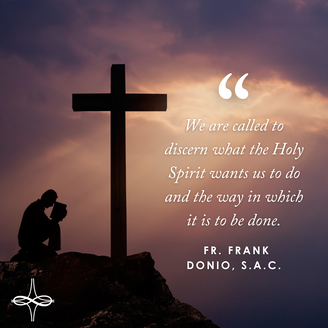 We can never forget that the Holy Spirit provides us with the ability to do what we do on mission for Christ. We can begin to think that what we do is simply of our own making. It is not. As with those in the Cenacle or Upper Room at Pentecost, we, too, have the power of the Holy Spirit moving and guiding us. We are called to discern what the Holy Spirit wants us to do and the way in which it is to be done. This part is a challenge. We want direct answers to our questions. When something gets difficult, we often want God to move those obstacles out of the way since we are doing the mission of Christ. And yet, one of the gifts of the Holy Spirit is wisdom, which teaches us that we are not in control, God is. As human beings, we so love to be in control, but we are not. God is and we, as believers, have faith which teaches us to trust in God and in God alone. Easier said than done. Being “filled with the Holy Spirit” (Acts 2:4), means that other things that fill us need to give way, especially the belief that we are in control. Instead, we are in what St. Vincent Pallotti called, “holy cooperation” with God. As baptized, we are co-responsible for the mission of Christ and the Church. He gave the mission to the Apostles to “go and make disciples” (Mt 28:19). We share in that same mission until Christ comes again! May the Blessed Virgin Mary, Queen of Apostles, intercede for us and the Charity of Christ urge us on! In Christ, Apostle of the Eternal Father, Fr. Frank While growing up, I remember seeing “Rejoice in the Lord always” (Phil 4:4) on the fridge every time I walked by. While telling my mom about this blog post, she said, “You have permission to use Philippians 4:4.” I joked, “I didn’t realize you had that verse trademarked.” This jovial interaction represents the joy of one of the saints we celebrate this week: St. Philip Neri. He’s known as the patron saint of joy. St. Paul’s Letter to the Philippians is known as the Epistle of Joy, so it’s fitting to see his name in PHILIPpians! What is joy? The secular use of “joy” is typically synonymous with “happiness.” Happiness is subject to what’s happening around you. Joy, on the other hand, is subject to our free will in choosing to abide in God’s grace. In this state of grace, joy can be equated with love (or divine charity). Happiness and sadness are opposed to one another, while joy and sorrow can be held together, even though they appear to be in tension. Our hearts can be filled with sorrow for what breaks God’s heart while still “entering the joy of the Lord” (CCC 1720). The reason we can have joy in this world is because “God doesn’t abandon His creatures to themselves. He not only gives them being and existence, but also…sustains them. Recognizing this utter dependence on God increases our wisdom, freedom, joy, and confidence” (CCC 301). “True happiness is found in God alone” (CCC 1723). How can joy help us connect with others? According to an article from the National Catholic Register, St. Philip “was known to show up to important events with half his beard shaved, give incorrect walking directions to his disciples, and read a book of jokes.” He believed that these behaviors helped him to connect with other people through being present and humble. He taught that “a joyful heart is more easily made perfect than a downcast one.” St. Paul used joy in his evangelical efforts as well. He was fully aware of the brokenness in his story, and he couldn’t keep God’s grace to himself. Love changes us and spreads like wildfire. St. Paul was knocked off a horse and given a new name. He went from threatening Christians with death to causing Christian conversions that brought new life. St. Philip became known as the “Apostle of Rome” and earned the respect of believers and non-believers because of the joy he exuded. His heart was physically enlarged because of his love and faith in the Lord…so much so that his ribs were broken! Love has no room for fear. One of the most common fears is public speaking. Something that St. Philip and St. Paul did not fear was sharing the faith with people they encountered. They were missionaries of love passionately sharing the love of God that they discovered richly in their own lives. St. Philip said, “God doesn’t ask us to do the impossible. He asks us to do what is possible with God’s grace.” How can we find joy in the face of evil in the world? In the last days leading up to His passion, Jesus said, “So you also are now in anguish. But I will see you again, and your hearts will rejoice, and no one will take your joy away from you” (Jn 16:22). In the wild times we live in, joy sometimes can be hard to find. Discouragement and confusion are often tools of the devil as he tries to distract us from this promise of Christ: joy can ALWAYS be ours. Jesus used the most unimaginable instrument of torture as the awesome instrument of salvation. On Good Friday, the Devil thought he won. On Easter Sunday, God turned the Cross into a gift. If you want to confuse the devil, be joyful. When St. Paul was imprisoned in Rome, one could think his ministry would cease. Instead of giving into discouragement, St. Paul wrote the Epistle of Joy to the people of Philippi thanking them for the blessing that they were to him and encouraging them in their faith. St. Paul stared death in the face a number of times before his beheading in Rome, but we don’t have to have these dramatic experiences to embrace our mortality. St. Philip suggests that we “prepare for death and live each day as if it were our last. Fill up days with goodness and don’t let them be squandered.” When asked what time it was on his deathbed, St. Philip said, “It’s eight… in an hour it’ll be nine, then ten, eleven, and midnight.” His companions responded by giggling before going to sleep. His legacy even in his last moments is joy! How can we be apostles of joy today? St. Philip suggests, “Have all the fun you want, but just don’t offend God.” He also suggests, “Cast yourself into the arms of God and be very sure that if He wants anything of you, He will fit you for the work and give you strength.” St. Paul says, “Rejoice in the Lord always. I will say it again: Rejoice! Let your gentleness be evident to all. The Lord is near. Do not be anxious about anything, but in everything, by prayer and petition, with thanksgiving, present your requests to God. And the peace of God, which transcends all understanding, will guard your hearts and your minds in Christ Jesus” (Phil 4:4-9). Let us ask the Holy Spirit to fill us with an abundance of the spiritual fruit of joy! We pray for the intercession of St. Philip and St. Paul to show us how to radiate joy no matter the circumstances around us. St. Philip Neri, patron saint of joy, pray for us! St. Paul the Apostle, writer of the Epistle of Joy, pray for us!
A second wind is often an unexpected gift. Whether it is discovered during a run, study session, or some other activity demanding intense focus and effort, what at first seems daunting and impossible to achieve suddenly becomes possible thanks to newfound strength and endurance. A second wind, while surely appreciated physically or mentally, can also be applied spiritually. As the Church celebrates her birthday on Pentecost Sunday, we can reflect on the incredible gift of the Holy Spirit who was sent by God Himself to provide the fledgling Christian faith a much needed second wind as apostles prepared to bring the Good News of Christ to the entire world.
One of the Gospel readings for Pentecost details our Lord’s promise to send the Holy Spirit to His disciples. In an earlier related chapter from John’s gospel, Christ Himself walks with the disciples and predicts His own Passion. He assures the disciples that they will not be abandoned as orphans, but will share in the very life of the Most Holy Trinity (John 14:15-31)! The consolation and comfort Jesus brought to those gathered in the Upper Room after His death and resurrection surely reminded them of this though He ordered them to not leave Jerusalem until “the promise of the Father” had been sent (John 20:19-23). It would not be until after Christ’s ascension, that the Holy Spirit would be sent upon the disciples and so enable them to carry out the Great Commission of our Lord, “Go therefore and make disciples of all nations, baptizing them in the name of the Father and of the Son and of the Holy Spirit, and teaching them to obey everything that I have commanded you.” While Christ had sent out the disciples to evangelize before (see Luke 10:1-20, cf. Matthew 10), these efforts were limited to “the lost sheep of the house of Israel.” Proselytizing the rest of the world would take place after the rejection of our Lord and would require grace to sustain the disciples through this incredible evangelical endeavor. Today, the faithful are not only entrusted with this mission, but have also been baptized and confirmed with the same Holy Spirit as was promised to Christ’s first followers! The Holy Spirit is truly God and is inseparable from the Father and the Son. Though Christ is seen, it is the Spirit who reveals Him. Thus, both are on a “joint mission” to reveal the visible image of the invisible God (see CCC 689). The Holy Spirit invites us to better know the Father and Son. Each person of the Trinity more fully deepens our understanding of God. As the Catechism says: Now God’s Spirit, who reveals God, makes known to us Christ, his Word, his living Utterance, but the Spirit does not speak of himself. The Spirit who “has spoken through the prophets” makes us hear the Father’s Word, but we do not hear the Spirit himself. We know him only in the movement by which he reveals the Word to us and disposes us to welcome him in faith. The Spirit of truth who “unveils” Christ to us “will not speak on his own.” (CCC 687) The Holy Spirit continuously reveals Christ to us when we make an effort to listen. Similarly, when we recognize and cooperate with the Holy Spirit dwelling within us, we are better able to contemplate Christ’s teachings and the great Mysteries of Faith. When we face discouragement or are unsure of a decision we must make, we are in similar circumstances to those waiting in the Upper Room. The gifts of the Holy Spirit strengthen our faith and helps us to judge our situations prudently. The courage to continue Christ’s mission and not be defeated by discouragement or rejection is not only an incredible witness to the Church, but also a recognition that the Holy Spirit continues to work among us wherever we are in our journey of faith! Just as the Holy Spirit descended upon our Lord at His baptism to start His mission on earth, so too did Christ send the Holy Spirit upon the disciples in the Upper Room as they began their ministry. Like the disciples, let us dare to be open to the Holy Spirit’s activity in our daily lives as a much needed second wind as we continue our Lord’s work so that at the end of our days, we may hear spoken to us, “Well done, my good and faithful servant ... Come, share your master’s joy.” Question for Reflection: Can you recall a moment when the Holy Spirit gave you the courage to continue through a difficult trial? **This post was originally published on 5/17/2018**
I spent my high school years at an all-boys Jesuit school in downtown Cleveland. It was an excellent experience where I met some wonderful people, had lots of fun, and started to be formed into the man I am today. Amidst all the craziness that came with going to school with fifteen hundred teenage boys, some of my fondest memories come from my time spent in a little chapel hidden in the hallway of one of our main academic buildings. Every week during free period, the Jesuit priests celebrated daily Mass in this little chapel for our school community. It was a very small space, maybe fitting twenty people if it was really packed. Some days it was full of faculty, staff, and students, but there were a handful of times when it was just the priest and me.
There is something quite unique about celebrating the Eucharist in such an intimate setting, especially when it is just you and the priest. First, there is enormous pressure to get all the responses right, as there is no one to back you up if you forget a line in the Penitential Act. Additionally, it feels like you are right up close to the action, not only seeing what the priest does, but even hearing some of the extra prayers that priests usually say to themselves in a larger setting. Looking back on these memories, these Masses are a reminder that the Mass is not just a nice occasion for Catholics to gather for an hour to pray together. The Mass is the eternal worship of the Son to the Father; through the priest, Jesus’s Paschal Mystery is made present, and the perfect love of the Trinity is on full display. In this sense, the Eucharist is not about us just eating a little piece of bread we believe to be Jesus’ body; it is about the Father and Son’s perfect love for one another, which does not depend on whether there’s one person or one thousand in the pews. While these small, intimate Masses hold a special place in my heart, something about them felt incomplete. There was no one to shake hands with at the Sign of Peace. Mine was the only voice responding as the Holy Scriptures were being proclaimed, and receiving Communion took about fifteen seconds. This reveals the mysterious truth that while the Mass is primarily the eternal worship of the Son to the Father, because of the Incarnation and Paschal Mystery we are destined to be united with Christ in His worship of the Father and the love of the Holy Spirit. When we go to Mass, we are brought into this divine mystery not just as individuals, but as a community. The Eucharist is the Body of Christ, and it brings us members of the Church (also the Body of Christ) into deeper communion with God and with one another. Considering this, I’d like to suggest three different levels on which we might view the Mass. At the end of the day, these are all describing the same Eucharistic mystery, but it may help us to truly appreciate what is going on when we go to Church. First, we witness up close the eternal worship of the Son given to the Father through the Holy Spirit. The powerful, mysterious, life-giving love of the Trinity is on display, which is quite simply mind-blowing. The God who spoke the stars into existence and took on flesh to save us has come close to show us His inner life. Secondly, we don’t simply watch all of this happen, but we actually get to receive it. This happens through the proclamation of the Scriptures, where we receive God’s word, and then through the reception of the Eucharist, where Jesus’s flesh and blood mingle with ours, and we receive the very life, love, and peace which we witness in the Trinity. Thirdly, we are gifted with the ability to experience all of this not just on our own, but alongside our brothers and sisters. Jesus came not just to reconcile humanity with God, but also to reconcile us with one another and with ourselves. So there is a level where God is relating to God, a level where God is relating to me, and finally a level where God is relating to all of us together, and we relate to one another. So next time you go to Mass, ask the Holy Spirit for the grace to truly see the different layers of divine activity at play in the Eucharistic celebration. Ask for the grace to see that Mass is more than just a gathering of believers. Ask for the grace to see God’s jealous love poured out for you as an individual in the Eucharist. Ask for the grace to see how the Eucharist unites us as the Church. The Eucharist is not about us, but it also is. God desperately desires to draw us into His love and communion as one Church, and in the Eucharist, He has given us an incredible gift which does just that. May we let Him draw us in. Mothers come in all shapes, sizes, colors, temperaments, sanities, and the list goes on and on. To be brutally honest, my mother and I are not close and our relationship is painful and strained. I’ve never pretended that things were good; I’ve always been mature enough to know that she wasn’t a healthy person to be around, and I’m the person I am today because of her and how she raised me. I’ve gotten my best and worst traits from her, and although I’ve tried my whole life to be something entirely different from her, I once in a while find myself saying the same kind of mom phrases she used to use. It’s taken me a lifetime of prayer and healing, but I’m a stronger, more resilient person thanks to her. One thing she did instill in me is a foundation in my Catholic faith. And although I discovered my relationship with God and my faith life for myself later in high school, she was the one making sure Christ was at the center of my life. Moms and mother figures are good like that; many center us on faith and give us some moral compass to live by.
Fast forward to three years ago, when I became a mother myself. My eyes were opened to the incredible highs and lows that come with a newborn. Then he grew into a toddler, and now he’s a fully operational human boy with thoughts and feelings and opinions of his own. Vincent is only three, but seeing life through his eyes and being his mom is the very best feeling I could have ever asked for. My whole perspective on what being a parent means and how I do that on a daily basis has filled my whole being at times. It’s wild to think that I’m a mom sometimes, and I wonder how many others pause to consider that too. From the moment of conception, we’re caring for and nourishing a human person within us. We were designed exactly as God intended: to be able to do this and withstand the pain and changes that not only our bodies go through but also our minds and hearts as well. God has a plan and motherhood is part of so many of our journeys in life. Even from a preschool teacher perspective, I never quite knew how it would feel to have a child of my own to raise and nurture and be able to introduce to God. This happens at dinner when we say Grace together; he knows the Sign of the Cross and has learned the prayer. This happens at church on Sundays when we talk about the colors, the statues, and the Cross. Vinny asks about the bells and knows how to say “Peace” when it’s time to share in the Sign of Peace. He knows that when it’s “our turn,” we can walk up the aisle for something extra special in the Eucharist. Just this past Sunday, he began to venture past the priest and onto the altar…which made the bishop (of course) burst into laughter. Mortified, I brought him back to our spot and hugged him so tight, knowing he will only be this little for a short time and that one day he might even find himself on the altar as a priest. God has a plan; meanwhile, we just wait and see what happens. Moms suffer the greatest heartaches, the greatest of joys, and everything imaginable in between. This Mother’s Day, let’s give each other grace. Moms nowadays are inundated with information and opinions and media and choices and advice, and we’re thrown into doing so much with very little help sometimes. Let’s say a little prayer for each other for strength, courage, and patience. Mary, Jesus’ mother and the greatest of all models to look up to when getting through our day-to-day life, is someone we can turn to and ask for intercession. Our Blessed Mother, even in her perfection, still somehow experienced similar feelings to those that we feel as mothers. I’d like to think that because Mary and so many other women were great mothers, I can be too. Finally, join me in praying a rosary for mothers. God loves all of his children; it’s our job to meet our sisters and brothers on this life’s mission and be an apostle to them on the road. As you pray these prayers, take a moment in your humility; put aside anger, resentment, stress, and distractions. On each bead, pray for a mother you know by name or someone you’ve never met. Consider praying for… …the mother who is anxious. …the mother who has suffered loss of a child(ren). …the mother who is estranged from her own mother. …the single mother. …the mother who feels alone in her motherhood. …the mother who has had miscarriage(s). …the mother who is scared. …the mother who is experiencing homelessness. …the mother who is in an abusive relationship. …the mother who has had an abortion. …the mother who has healthy children. …the mother who is sad. …the step-mother. …the mother who is worried. …the mother who is the breadwinner. …the mother who has addictions. …the mother who forgets about her own self-worth. …the mother who is struggling. …the mother who is without faith. …the mother who is doubting herself. …the newly-pregnant mother. …the mother who is working. …the mother who stays at home. …every mother. While reflecting on the saints and blesseds that we newly added to our Feast Day website for this month of May, I was struck by the beauty in the diversity of lives they lived. One of the most important lessons I have learned is that there isn’t just one way to be a saint; in fact, there aren’t even one hundred set ways to be a saint. The way that God is calling us to be a saint is unique and individual to each one of us. I find it inspiring to learn about the lives of saints and take tidbits of their life as encouragement and motivation in my day-to-day path of following Christ. Bl. Sandra Sabattini Last week, we got to celebrate the feast of Bl. Sandra Sabattini. Before working on this project, I had never heard of Bl. Sandra; now she is someone I hope to read more about, and I find myself praying for her intercession. She was born in Italy in 1961, and after high school she worked in clinics helping those addicted to drugs. In her work there, she felt God’s call to work in medical missions in Africa, so she went to medical school. She was hit by a car and killed in 1984 when she was only twenty-two, but her legacy continues today because of her holiness. She strove to help others grow closer to Christ, no matter their situation, and she sought to do so by using her God-given gifts and talents in her own unique way to give back to the community. For me, as a young person in the biomedical field, the life of Bl. Sandra has many, many lessons. St. Dymphna This coming Monday we will celebrate the feast of St. Dymphna. If it wasn’t for their shared Catholic faith, I don’t think anyone would even mention St. Dymphna and Bl. Sandra in the same sentence. Dymphna was a seventh-century saint who was born into royalty, but upon her mother’s death, she had to flee from her mentally deranged father. She was martyred by her father when she was only fifteen because of her father’s desire to remarry. Throughout the centuries, St. Dymphna has grown to become the patron saint of mental health and those with nervous afflictions. Ultimately, while Bl. Sandra and St. Dymphna had very different lives, it is their same faith in Christ that guided and helped them live the saintly lives for which we remember them today. St. Paschal Baylón On Wednesday, May 17, we will celebrate a saint whose humility can inspire us to get through a challenging week and help us put everything in perspective. St. Paschal Baylón was a Spanish Franciscan brother in the sixteenth century. He grew up in a poor family, and before he joined the Franciscans, he was a shepherd. Upon joining the Franciscans as a brother, he held small but important roles in the community, like porter and gardener. He undertook these tasks with great dedication and would use his time in solitude during his work for personal contemplation. Paschal became known for his teachings on the Eucharist, which were rooted in his time spent in personal contemplation. As we live in this busy world of never-ending things to do, let us take time to allow a space for personal contemplation and conversation with God throughout our daily tasks. Bl. Louis-Zéphirin Moreau On the opposite side from a quiet, contemplative gardener is a bishop who spent his twenty-five years in the episcopate founding schools and churches throughout his diocese. Bl. Louis-Zéphirin Moreau was a nineteenth-century Canadian bishop who served as bishop of Saint-Hyacinthe from 1875 to 1901. As bishop, he helped revitalize the diocese by founding schools, churches, and two religious communities who served within the diocese. I can’t imagine how busy someone like Bishop Moreau must have been, trying to complete all of his tasks as bishop while at the same time trying to serve the diocese. Yet through it all, as many people commented during his beatification process, he maintained his personal piousness, never wavering in his devotion and trust in Christ throughout all of his work. So from the humble gardener to the revitalizing bishop, let us try to take a page from their book and take time in our weeks to give ourselves to Christ and let Him lead us. To learn more about the saints, visit our Catholic Feast Days Website by clicking here. Bl. Sandra Sabattini, pray for us. St. Dymphna, pray for us. St. Paschal Baylón, pray for us. Bl. Louis-Zéphirin Moreau, pray for us.
But he said to them, "Unless I see in his hands the print of the nails, and place my finger in the mark of the nails, and place my hand in his side, I will not believe." -John 20:25 During this beautiful liturgical season of rejoicing in the Resurrection of Our Lord, I always find this particular passage about “Doubting Thomas” extremely important to stop and reflect upon. After weeks and weeks experiencing the desert of Lent, the Passion on Good Friday, and the somber waiting on Holy Saturday, we celebrate the Father’s goodness, His promise fulfilled, His Son glorified on Easter Sunday! Praise Him, for “by his wounds we are healed.” (Isaiah 53:5) On the Sunday when the Gospel passage about Thomas is proclaimed, I tend to sympathize with the “doubting” disciple. Thomas was not there the first time Jesus appeared to the disciples. I resonate with Thomas’s human response of needing to touch the side of the Lord in order to believe. What strikes me about Thomas is his initial understanding that the Resurrected Lord would have His wounds. Why did Thomas believe the Lord in His glory would still be wounded? I find myself thinking of the Lord in His glorified body as “perfect,” without blemish, without the aftermath of pain, with every scar from Good Friday completely gone. Thomas, however, needed to see evidence from the Lord’s action on Friday for the sake of belief. Thomas came to know the Risen Lord through His wounds. Do you fall into the same temptation that I do, that resurrection means pain and suffering will be completely dispelled and erased, as if it never happened? This is not how the Lord comes in His glory. Jesus returns with His wounds, glorified, resurrected, transfigured. In fact, Jesus’ wounds were necessary for the increasing of faith for His disciples. Christ takes on the burden of our sins in order to overcome them. He conquers man’s greatest foe, death itself, and invites us to eternal life. The scars and wounds Christ shows Thomas give testament to this truth. The pain of Good Friday brings the sweetness in the joy of the Resurrection on Easter Sunday and thereafter. How does this apply to our lives? Are you struggling with something you see little hope in? Do you find yourself asking the Lord for a different cross? Just as Jesus’ wounds and sufferings are glorified, so shall ours be if we turn them over to God. We can be sure then that our own struggles, crosses, and sufferings will be brought to glory, not forgotten, but resurrected. Our particular areas of pain can bring others to the glory of Jesus Christ! Let us ask St. Thomas to help our unbelief and truly live in the hope of the Resurrection. “Each man in his suffering can also become a sharer in the redemptive suffering of Christ.” –St. John Paul II, Salvifici Doloris Question for Reflection: How can the story of “Doubting Thomas” increase your faith? Have there been times in your life when you, too, need to see in order to believe? **This post was originally published on 5/4/2017** Alleluia! How exciting it is to be in the Easter season. After forty days of Lent and then the reflective and prayerful experience of Holy Week, walking along with Jesus on the road to Gethsemane, we finally made it to the joy of the Resurrection on Easter Sunday. One of the beautiful gifts of our faith is that the celebration keeps going. We continue to celebrate the Easter season for many more weeks, and we are called to do just that: celebrate! I grew up in a family of celebrators and I have, fortunately, married into a family of celebrators. I remember growing up as a kid and partaking in many family celebrations from Christmas and Easter to birthdays and anniversaries to graduations and, sometimes, for no real reason at all besides wanting to be together. I am grateful for these times because they really shaped me and have made me who I am today. Whatever adversity life throws at me, I genuinely try to find the good and find ways to celebrate, even if it might be challenging. During these celebrations, which I now carry on with my own family, there was always food. My grandma was an excellent cook, a talent which she passed on to her children. We shared dishes from our Polish heritage, meals filled with delicious home-cooking, including fried chicken, mashed potatoes, or food brought in from one of our favorite local restaurants. The food was always plentiful, and the conversation and laughter, particularly from my grandma, was often as comforting as the food. As we hear in the story of the Road to Emmaus during the Easter season, Jesus is walking along with two of his apostles who do not recognize that it is him. It is not until he breaks bread with them that they recognize that he is truly risen. There is a unique beauty in sharing a meal with those we love. Meals together nourish us physically, but also spiritually and emotionally. Spending time with those we love and celebrating being able to be together is a gift, a gift that, just a few years ago, seemed like something we would not be able to have again. It is important to take time to acknowledge the gift of being together and celebrate the sacrifices we all make in order to do so. As we continue through the Easter season, I encourage you to find reasons to celebrate Christ’s Resurrection, especially with those around us. Share a meal, make an invitation to a friend to join you for Mass, pray together, experience the beauty of nature in spring, or simply enjoy time spent with a friend or a loved one or a stranger. We can experience the joy of the Resurrection in a more profound way when we are able to do so with others. |
Details
Archives
July 2024
Categories
All
|
About |
Media |
© COPYRIGHT 2024 | ALL RIGHTS RESERVED

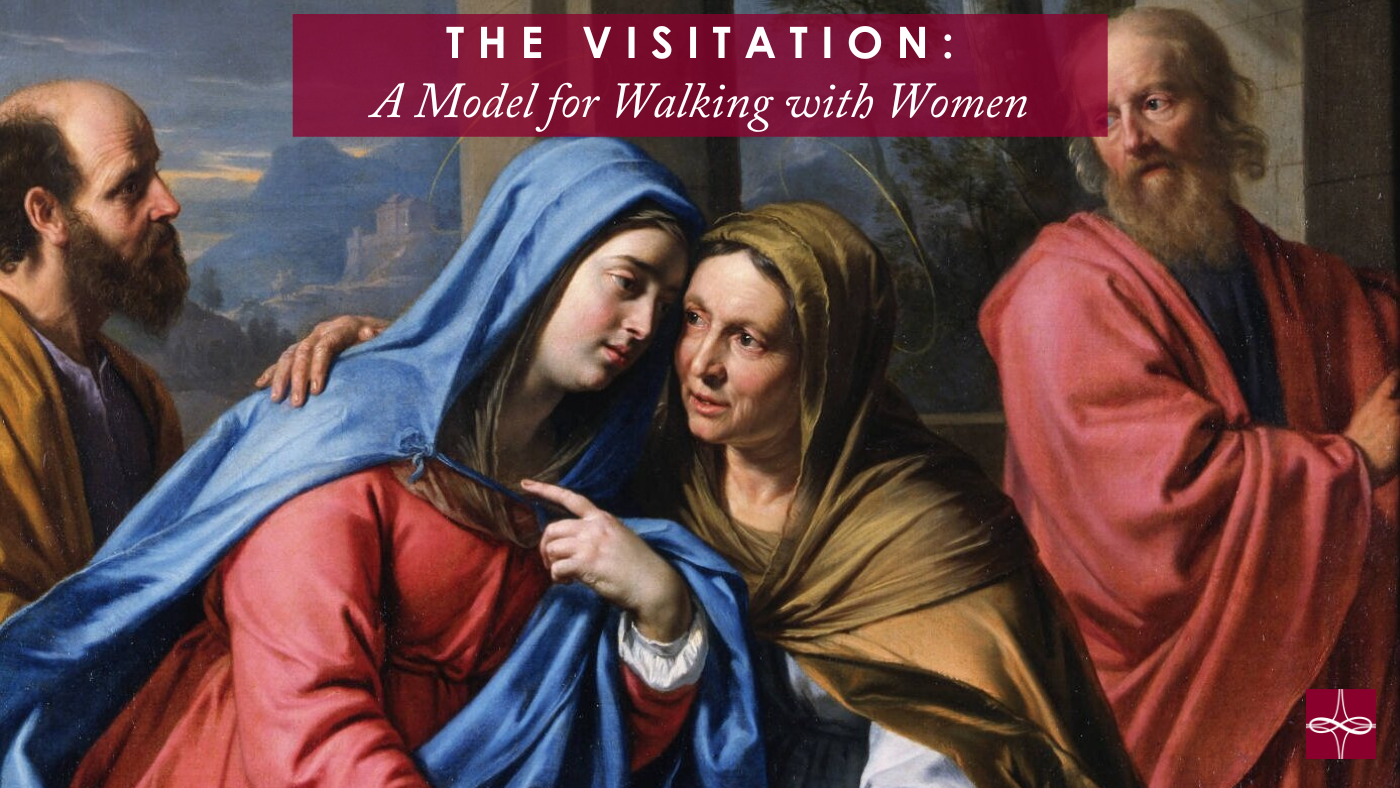

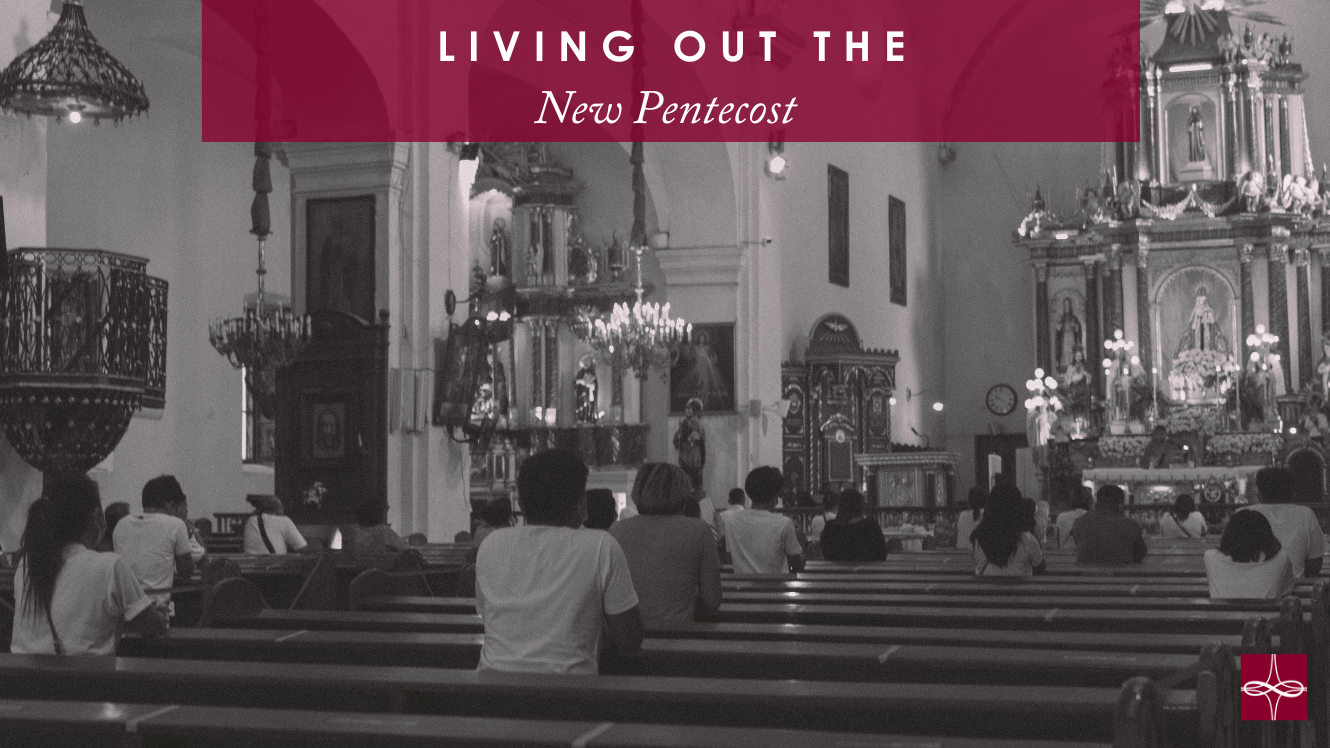

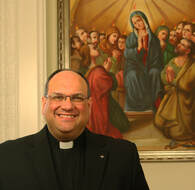
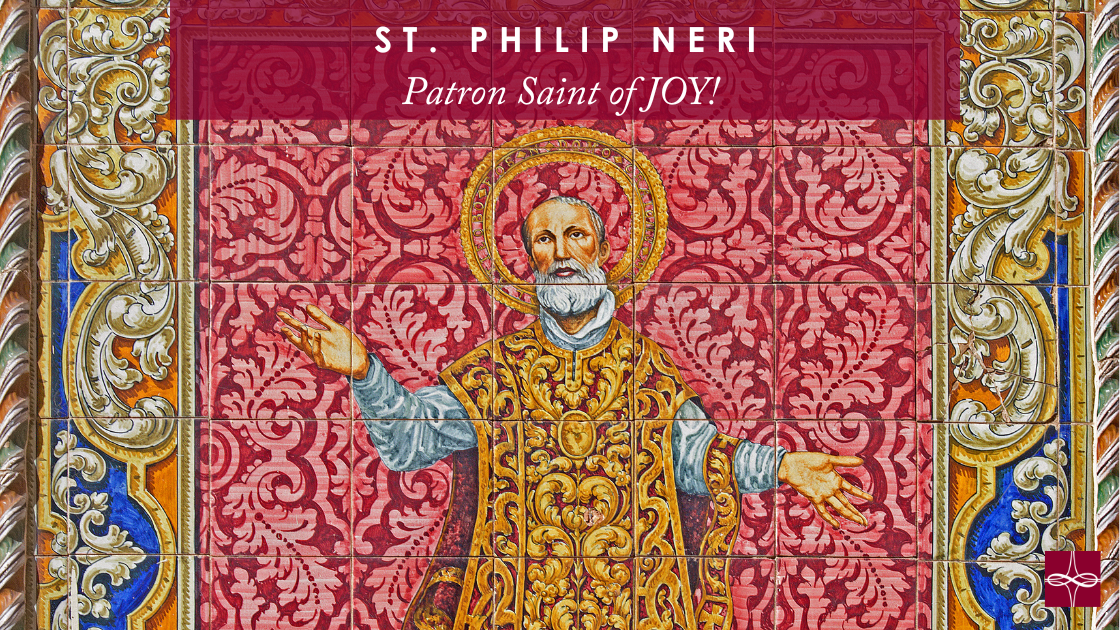

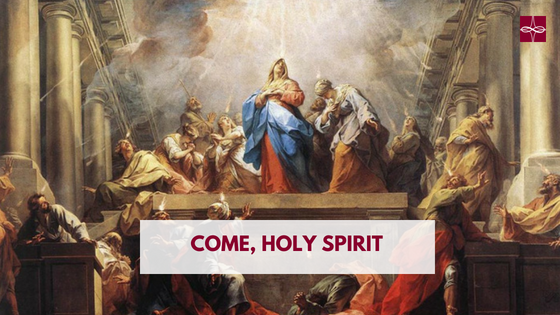

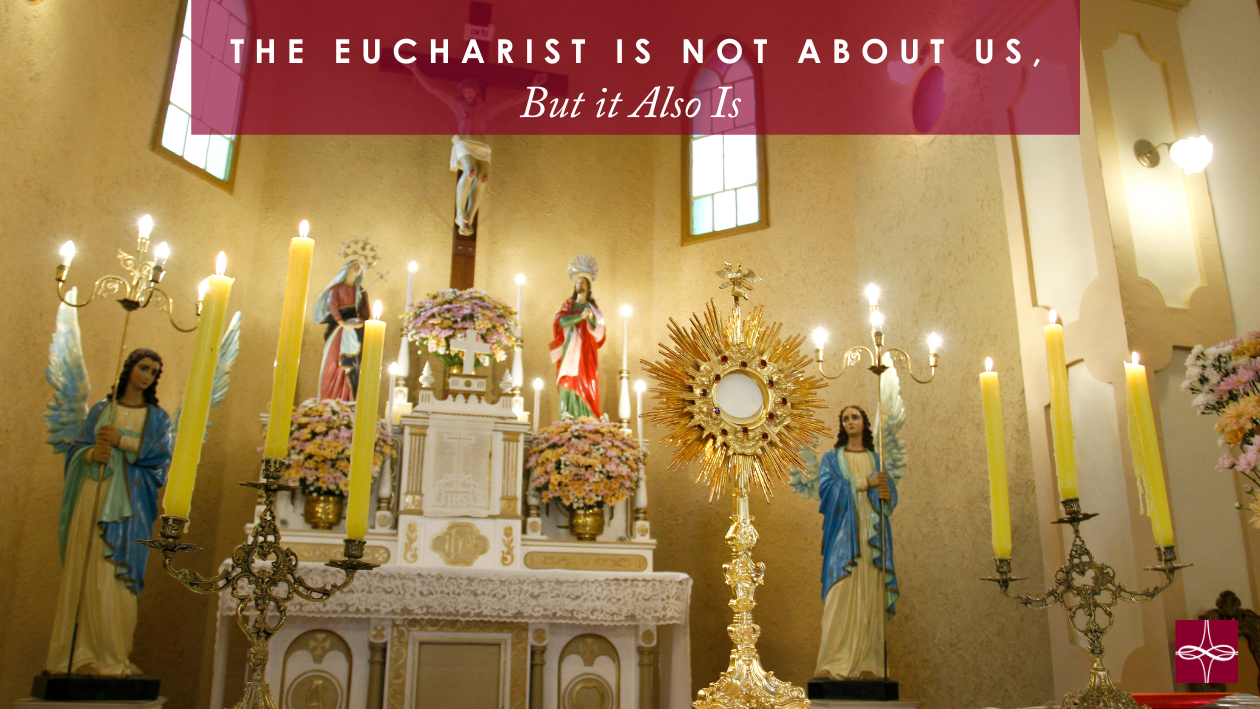



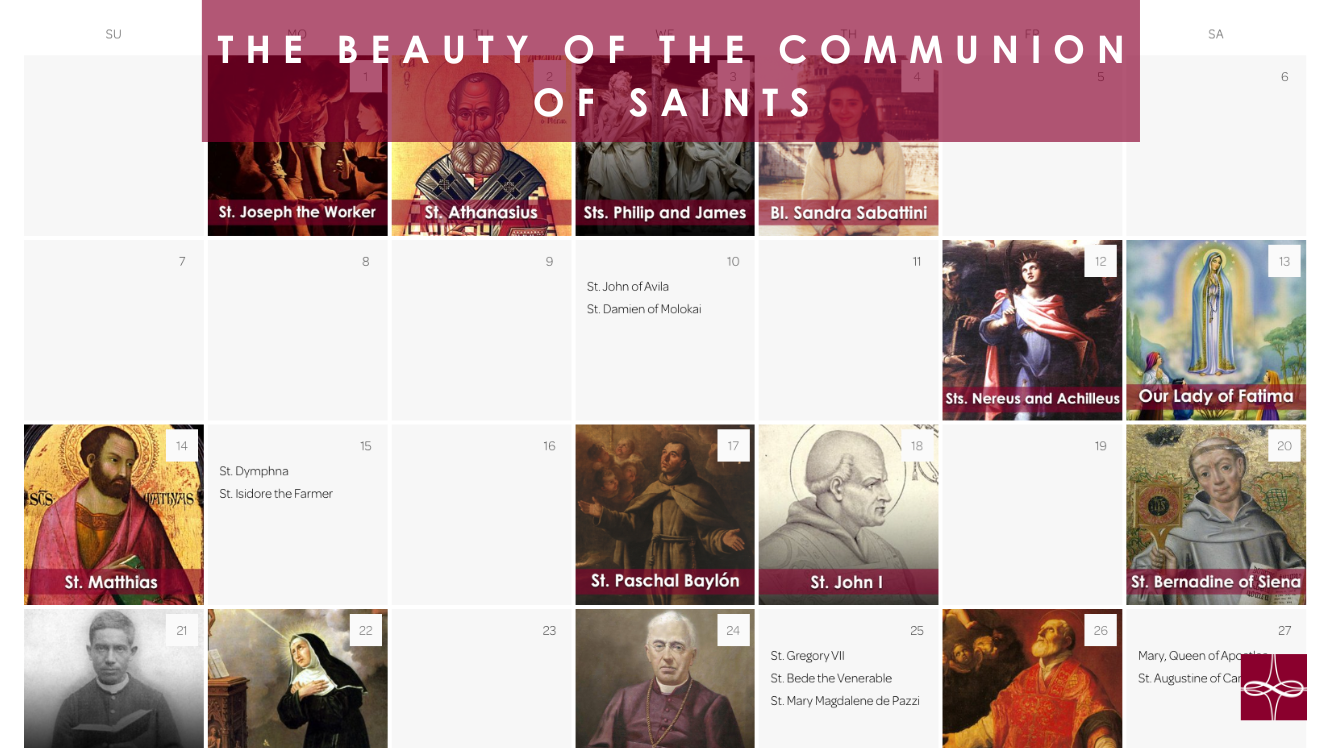

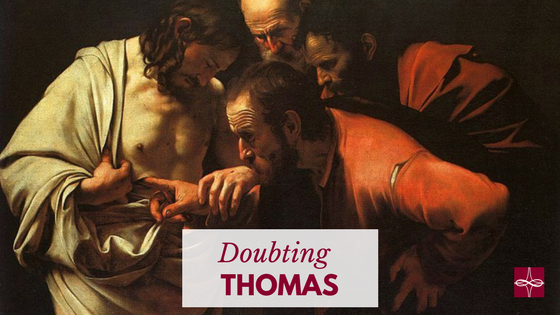

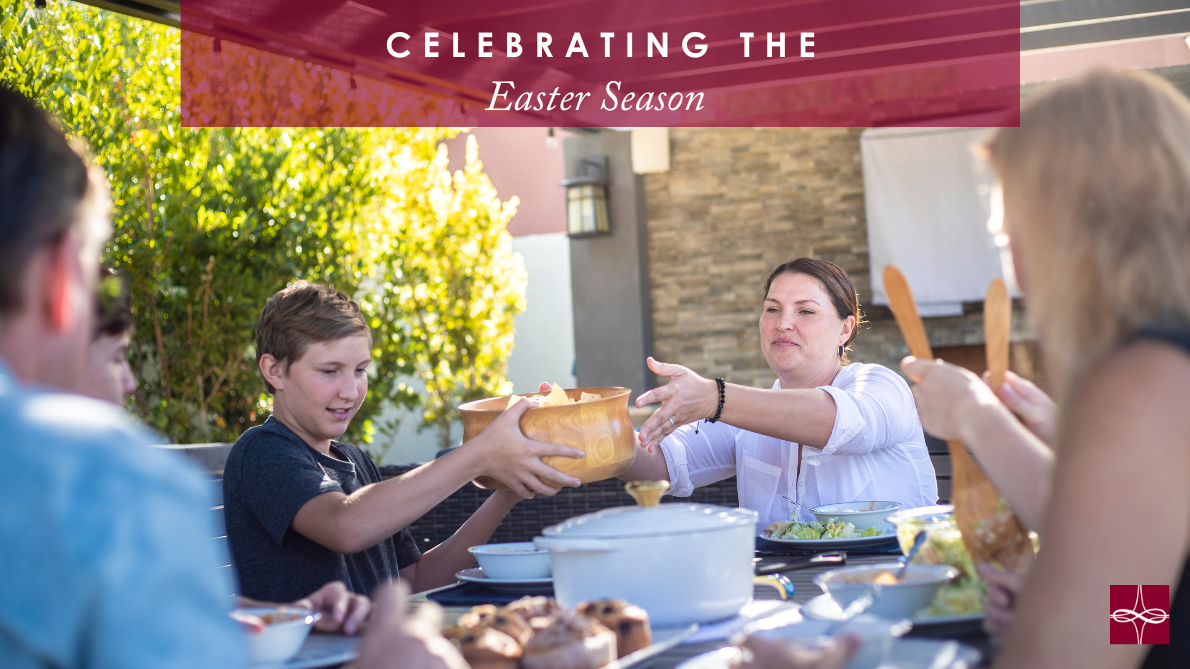

 RSS Feed
RSS Feed